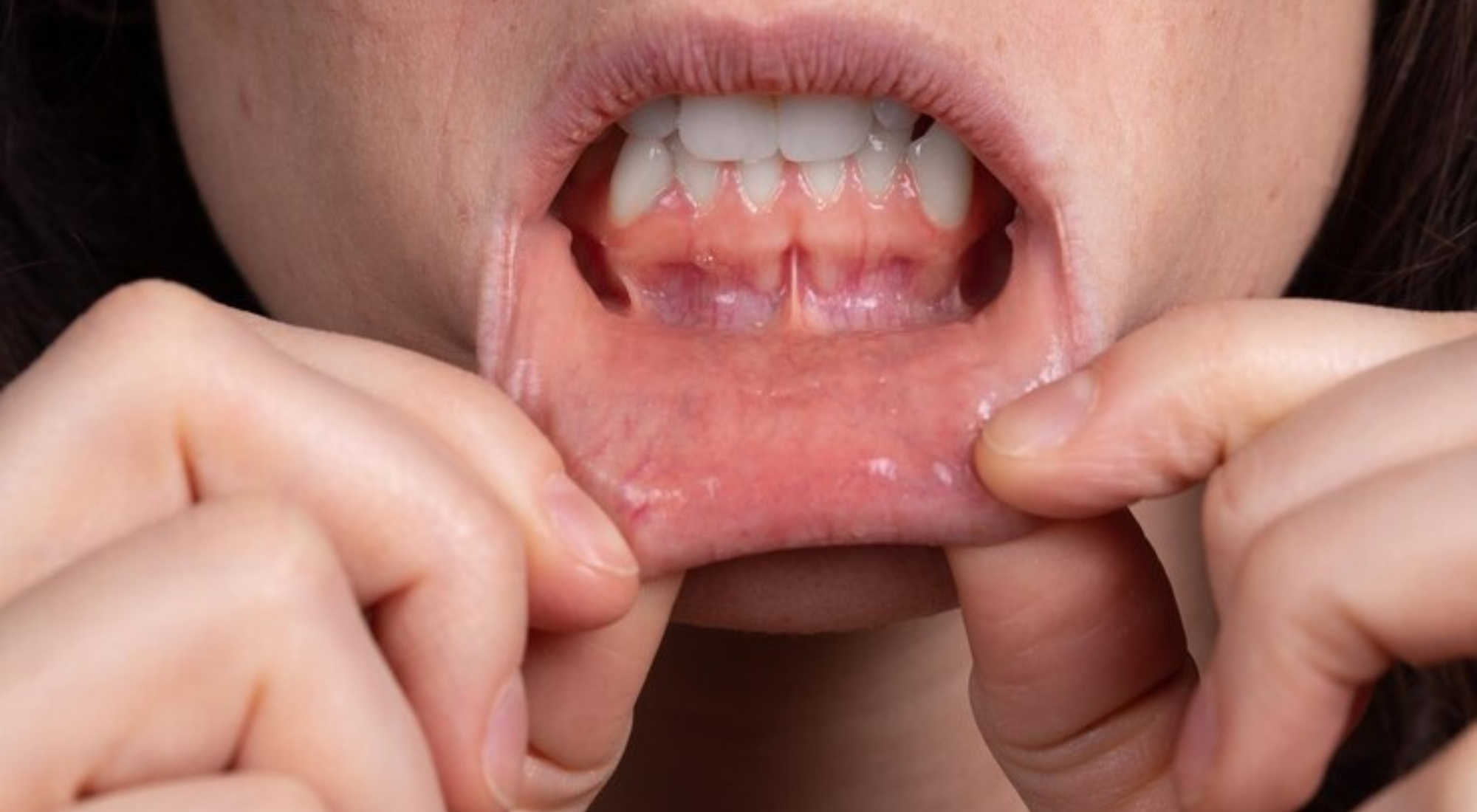Canker sores, also known as aphthous ulcers, are unwelcome visitors that can wreak havoc on your oral cavity. These small, round lesions typically appear on the soft tissues inside your mouth, like the inner cheeks, tongue, or lips. While seemingly insignificant, canker sores can be quite painful, making even simple actions like talking and eating a challenge. The exact cause of canker sores remains an enigma, confounding researchers and frustrating sufferers alike. However, despite this mystery, several factors are believed to play a role in triggering these pesky ulcers. Understanding these potential culprits can empower you to take steps to minimize outbreaks and find relief when they do occur.
The Potential Causes of Canker Sores
While the definitive cause of canker sores eludes us, numerous potential triggers have been identified. Here’s a closer look at some of the common suspects:
Injury to the Mouth’s Inner Lining: Ouch! Biting your cheek, brushing too vigorously, or ill-fitting dentures can all cause minor injuries inside your mouth. These disruptions to the delicate gum tissue can trigger the formation of canker sores.
Dietary Disruptions: Certain foods, particularly those high in acidity, like citrus fruits (grapefruits, oranges), tomatoes, and pineapples, may trigger canker sores in some individuals. Additionally, people with sensitivities to specific ingredients, like chocolate, coffee, nuts, or cheese, might experience outbreaks after consuming them.
Stress: Feeling stressed? You’re not alone. Stress is a well-known potential trigger for canker sores. When the body is under stress, the immune system goes into overdrive, which can lead to inflammation and the development of canker sores.
Nutritional Deficiencies: A lack of essential vitamins and minerals can also contribute to canker sore formation. Deficiencies in vitamin B12, zinc, iron, or folic acid might contribute to outbreaks.
Hormonal Fluctuations: Hormonal shifts, particularly during menstruation, can trigger canker sores in some women.
Certain Medications: Some medications, such as nonsteroidal anti-inflammatory drugs (NSAIDs) like ibuprofen, have been linked to canker sores.
Family History: If canker sores are a recurring issue for your close relatives, you might be more predisposed to experiencing them as well. Genetics is a potential factor.
Weakened Immune System: A weakened immune system due to illness, HIV/AIDS, or other conditions can make you more susceptible to canker sores.
Autoimmune Disorders: Certain autoimmune diseases, like Behcet’s disease, can cause canker sores as a symptom.
Effects of Canker Sores on Your Oral Health
Canker sores are not contagious and usually heal on their own within one to two weeks. However, while they are present, canker sores can cause a number of issues that can negatively impact your oral health. Here are some of the effects of canker sores on your oral health:
Pain and Discomfort: Canker sores can be quite painful, especially when you eat, drink, talk, or brush your teeth. This can make it difficult to maintain good oral hygiene practices, which can lead to other problems, such as cavities and gum disease.
Difficulty Eating and Drinking: The pain associated with canker sores can make it difficult to eat and drink. This can lead to dehydration and malnutrition.
Increased Risk of Infection: Canker sores create open wounds in the mouth, which can increase the risk of infection. Good oral hygiene can help prevent infection.
Effective Canker Sore Treatments
While there’s no known cure for canker sores, there are, fortunately, ways to manage the discomfort and promote healing. Here’s a detailed look at some effective treatment options to consider:
Over-the-counter Pain Relief: Over-the-counter medications like acetaminophen or ibuprofen can help alleviate the general discomfort and inflammation associated with canker sores. Look for ointments or gels containing lidocaine or benzocaine. Apply a thin layer directly to the sore for localized numbing relief. Follow dosage instructions carefully and avoid using these products for extended periods, as they can irritate the sore further.
Protective Measures: Opt for soft, cool foods and beverages during an outbreak. Mashed potatoes, yogurt, and smoothies are all gentle on your mouth. Spicy, acidic, or citrusy foods can worsen canker sores. Steer clear of culprits like tomatoes, oranges, hot peppers, and acidic drinks. Use a straw to minimize contact between beverages and the sore. This will help prevent further irritation while allowing you to stay hydrated.
Oral Rinses: Certain over-the-counter mouth rinses formulated for canker sores can provide a numbing and cleansing effect. Look for alcohol-free rinses containing hydrogen peroxide and sucralfate. Peroxide has mild antiseptic properties to help reduce bacteria around the sore. On the other hand, sucralfate forms a protective coating over the sore, aiding healing and reducing discomfort.
Lifestyle Modifications: Adequate sleep strengthens your immune system, which can help your body fight off canker sores and promote healing. Stress is a known trigger for canker sores. Practice relaxation techniques like deep breathing or meditation to manage stress levels. Ensure your diet is rich in essential vitamins and minerals, especially vitamins B12 and iron, which can contribute to a healthy mouth and potentially reduce the frequency of canker sores.
While canker sores might seem mysterious, understanding the triggers and treatments can bring much-needed relief. By identifying your culprits and keeping a soothing balm on hand, you can turn those frowns upside down and keep your smile healthy and happy!




